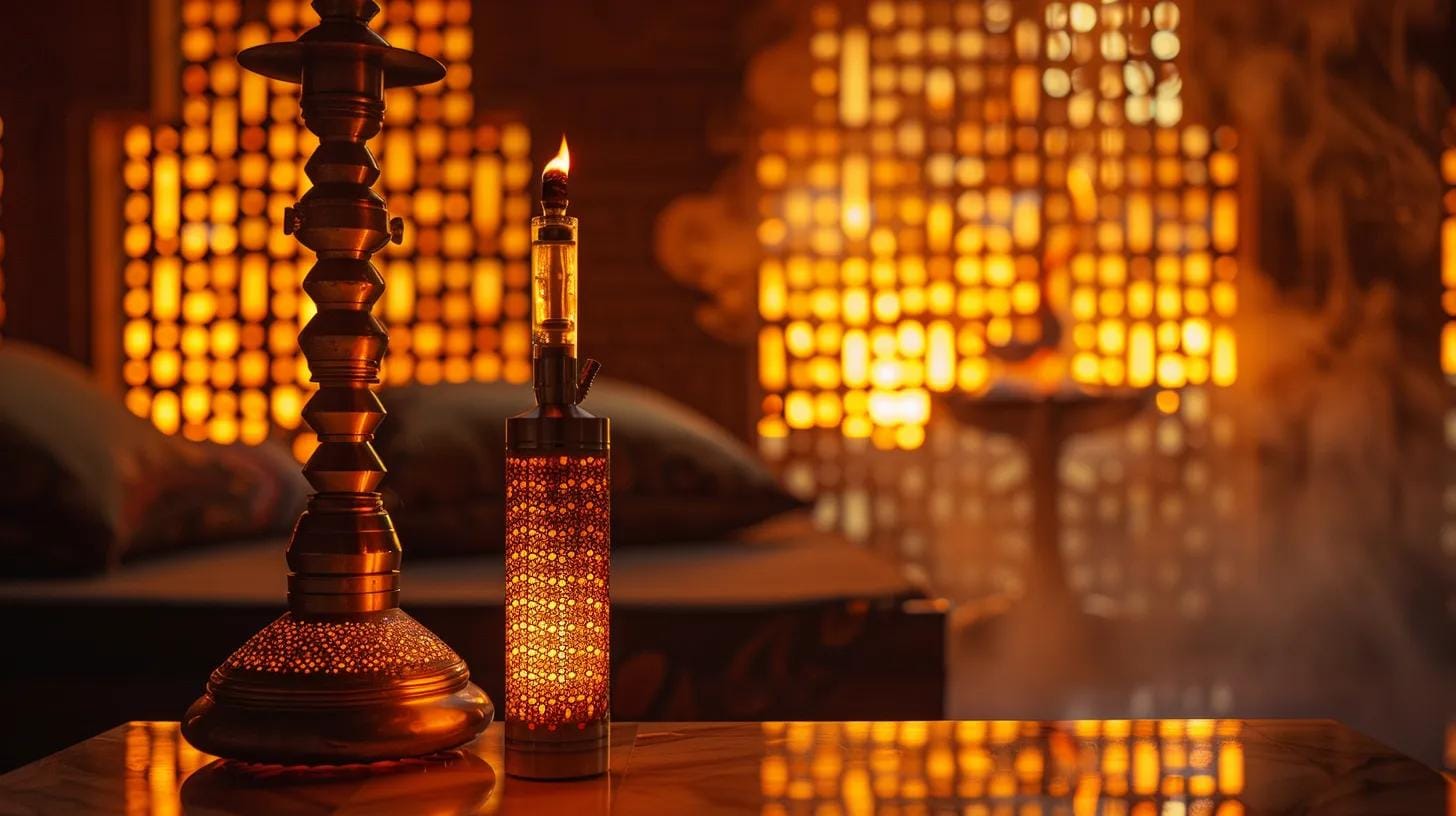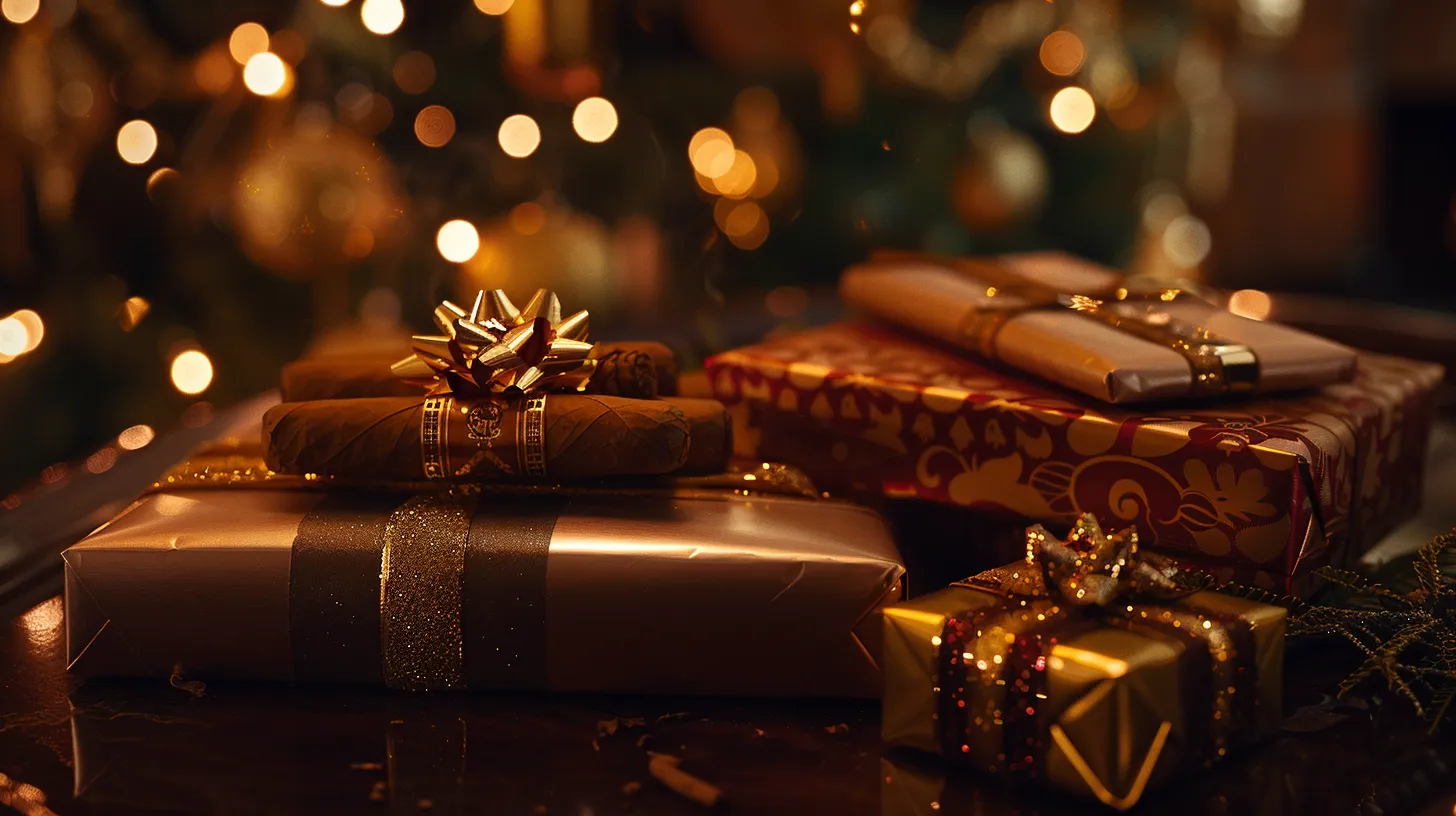Cigars hold a rich and storied history, woven into the fabric of cultures around the world. From ceremonial offerings in ancient civilizations to symbols of luxury and prestige in modern society, cigars have played a prominent role in human history for centuries.
In this comprehensive exploration, we’ll embark on a deep dive into the heritage of cigars, tracing their evolution from humble beginnings to the status of coveted indulgence they hold today.
From the tobacco fields of the Caribbean to the bustling streets of Havana and beyond, join us as we unravel the fascinating tale of tobacco history and its enduring legacy in our global cultural tapestry.
From Ancient Origins to Modern Marvels: Unearthing Tobacco History
The Origins of Tobacco: Unveiling Ancient Roots
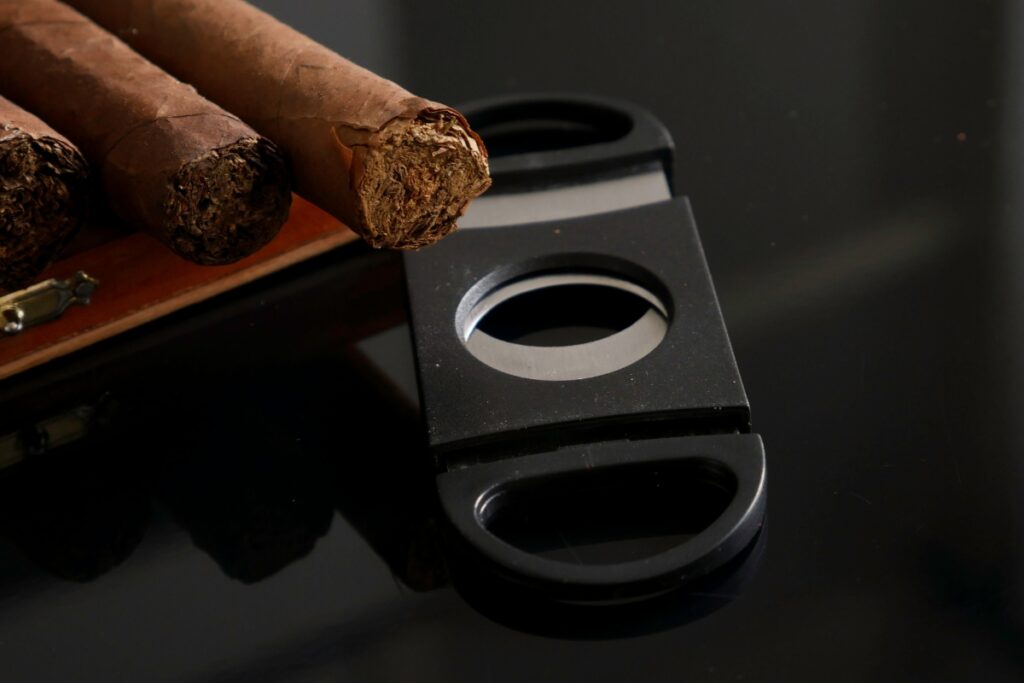
Tobacco, a plant native to the Americas, has a culture and history that stretches back thousands of years. The story of tobacco begins with indigenous cultures who revered the plant for its medicinal and spiritual properties. Archaeological evidence suggests that tobacco was used in rituals and ceremonies as early as 5000 BCE.
Native Americans believed that tobacco had the power to connect them with the spiritual realm and used it in various ways, such as smoking it in pipes or offering it as a gift to deities. The cultivation and use of tobacco spread throughout the Americas, with different tribes developing their own unique traditions and methods of consumption.
Upon reaching the shores of the Americas during the 15th century, European explorers were introduced to tobacco for the very first time. Intrigued by its characteristics, they transported it back to Europe, where it swiftly captivated the masses. This newfound fascination with tobacco sparked a surge in demand, prompting the creation of plantations in regions like Virginia and Maryland.
The introduction of tobacco to Europe had a profound impact on both cultures. Europeans embraced smoking as a social activity, while Native American traditions surrounding tobacco were altered or suppressed by colonial powers. The global trade in tobacco became an integral part of European economies and fueled debates about its health effects and moral implications.
From Native Rituals to Colonial Trade: Tobacco’s Journey Through Time
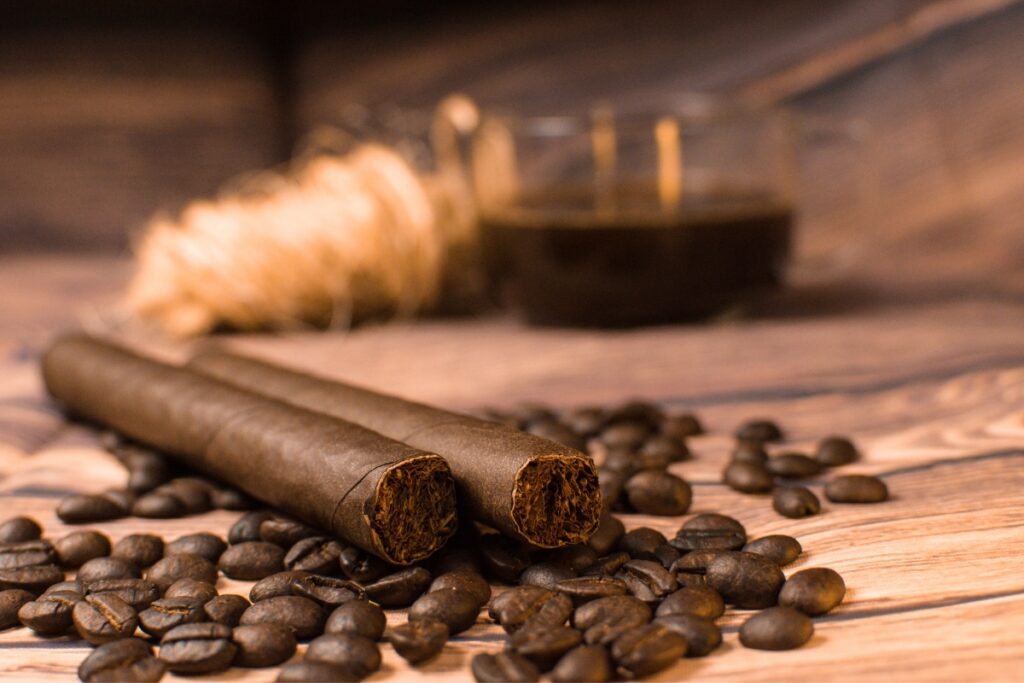
Exploring the roots of tobacco history, we are transported to ancient rituals where indigenous communities revered tobacco for its spiritual and medicinal properties. The ceremonial use of tobacco among Native American tribes symbolized connection with the spiritual world and played a pivotal role in tribal practices.
The arrival of European colonizers marked a significant turning point in the Tobacco History narrative. Colonial Trade routes facilitated the global spread of tobacco, transforming it from a sacred plant into a lucrative commodity. The demand for tobacco soared, leading to the establishment of plantations and the exploitation of labor in the New World.
As we trace tobacco’s journey through time, we witness how it became intertwined with social customs, trade networks, and even political landscapes. The cultivation of tobacco shaped economies, fueled conflicts, and influenced cultural exchange on a global scale.
From the smoke-filled rituals of indigenous tribes to the bustling markets of colonial ports, tobacco’s journey is a testament to the complex interplay between tradition and commerce. Its legacy endures as a symbol of both cultural heritage and economic power in the modern world.
The Birth of Cigars: Crafting the Perfect Blend
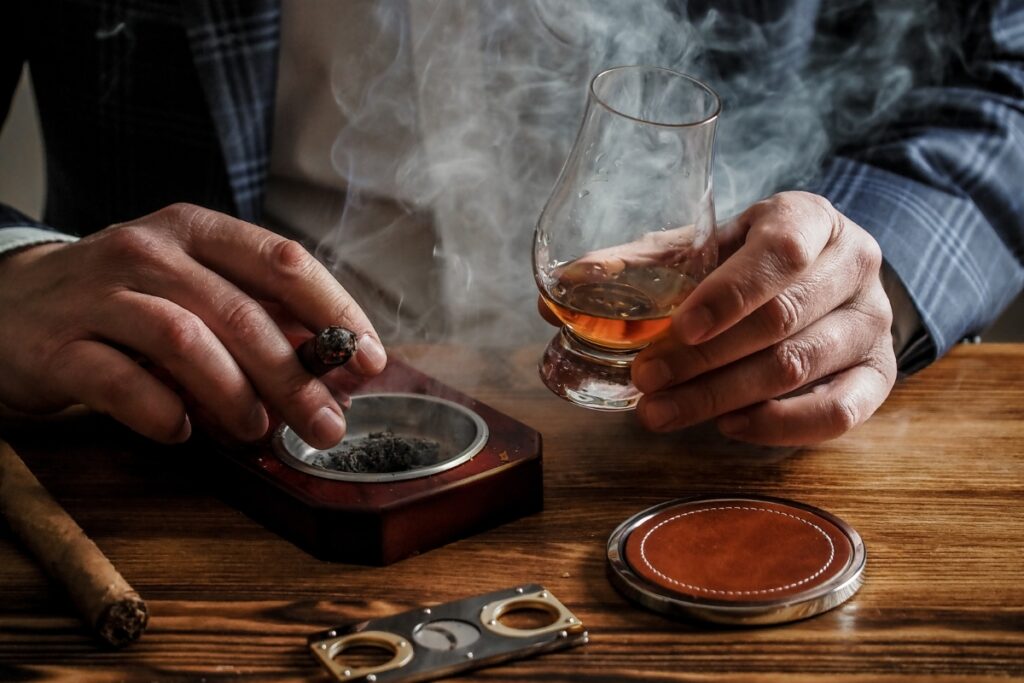
The birth of cigars traces back to a rich history deeply intertwined with the cultivation and crafting of tobacco. Tobacco history unveils the roots of cigar heritage, where artisans masterfully blend various tobaccos to create the perfect cigar.
Centuries ago, indigenous tribes in the Americas were the first to cultivate and smoke tobacco, laying the foundation for the cigar’s inception. The evolution of cigars can be attributed to the meticulous process of blending different tobacco varieties, each contributing distinct flavors and aromas.
Creating the ultimate fusion requires a seamless mix of filler, binder, and wrapper tobaccos. The filler, a medley of various leaves, dictates the cigar’s potency and robustness. Acting as the backbone, the binder leaf keeps the filler intact, whereas the wrapper leaf not only elevates the visual appeal but also shapes the cigar’s complete taste spectrum.
Throughout history, cigar artisans have perfected their blending techniques, passing down traditions and secrets from generation to generation. Each cigar tells a story, reflecting the expertise and creativity of its maker.
The Golden Age of Cigar Production: Exploring Historical Pinnacles
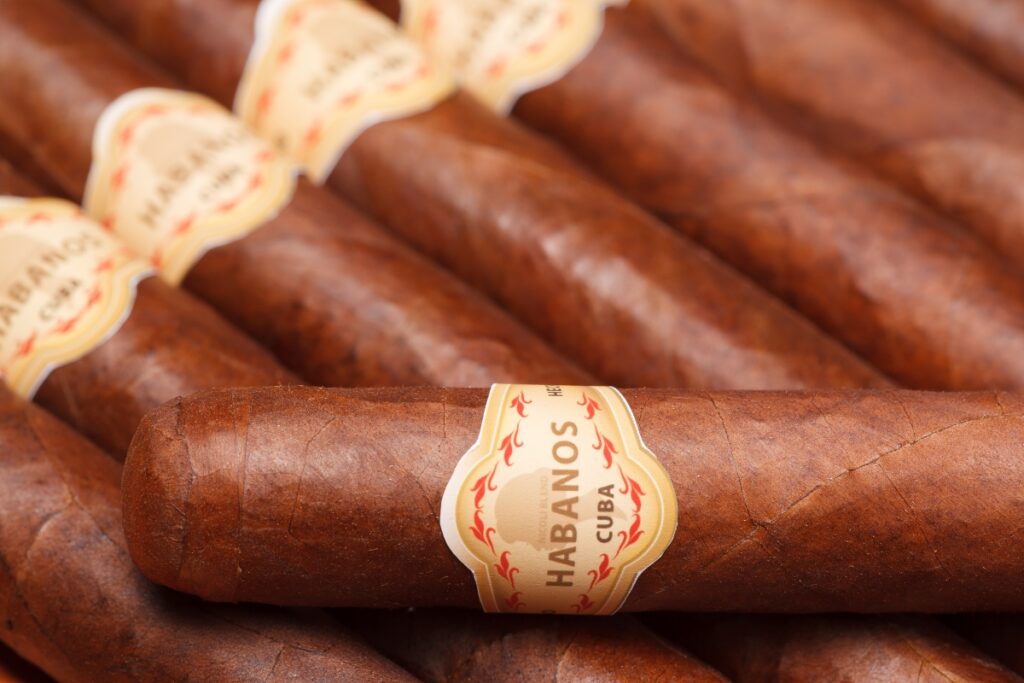
During the Golden Age of cigar production, the tobacco industry flourished, marking significant historical pinnacles that shaped the cigar heritage we know today.
Tobacco history reveals the intricate processes involved in cigar production, from cultivation to manufacturing. The meticulous cultivation of tobacco plants, known for their unique flavors and aromas, reflects the expertise of generations dedicated to perfecting the art of cigar-making.
Exploring historical pinnacles in cigar production unveils the evolution of techniques and traditions passed down through centuries. Each cigar crafted during this golden age embodies the craftsmanship and dedication of artisans committed to preserving the legacy of cigar heritage.
The Golden Age of cigar production not only revolutionized the industry but also contributed to the cultural fabric of societies where cigar smoking became a symbol of prestige and sophistication. The allure of cigars transcended borders, creating a global appreciation for the artistry and complexity behind each cigar blend.
Tobacco Wars and Trade Routes: Navigating Controversies and Competition
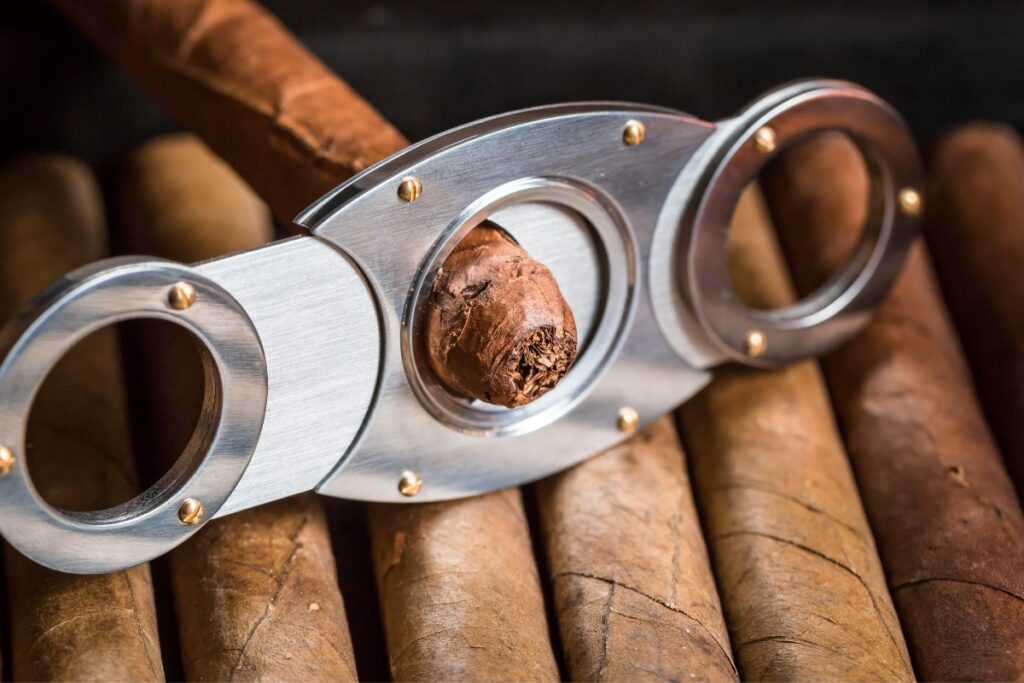
Tobacco, often associated with luxury and indulgence, has a long and storied past intertwined with conflicts and commerce. From the early trade routes that brought tobacco to new lands to the modern-day controversies surrounding its production and consumption, the journey of this beloved leaf is a fascinating tale of resilience and adaptation.
Exploring the origins of cigars reveals a blend of craftsmanship and tradition that has endured for centuries. The cultivation of tobacco leaves, the art of rolling cigars, and the rituals associated with smoking them have all contributed to the cultural significance of this age-old practice.
Throughout history, tobacco has been a sought-after commodity, driving trade routes and sparking conflicts between nations vying for control of this lucrative market. The Tobacco Wars, whether fought on battlefields or in boardrooms, have left a lasting impact on the industry and the communities that rely on it for livelihood.
Navigating the complexities of tobacco history requires a nuanced understanding of the forces at play – from colonial exploitation to modern-day regulations aimed at curbing its harmful effects. By tracing the evolution of cigar heritage alongside the controversies and competition that have shaped it, we gain insight into the broader themes of power, culture, and economics that continue to define the tobacco industry today.
Iconic Cigar Brands: Legends That Endure
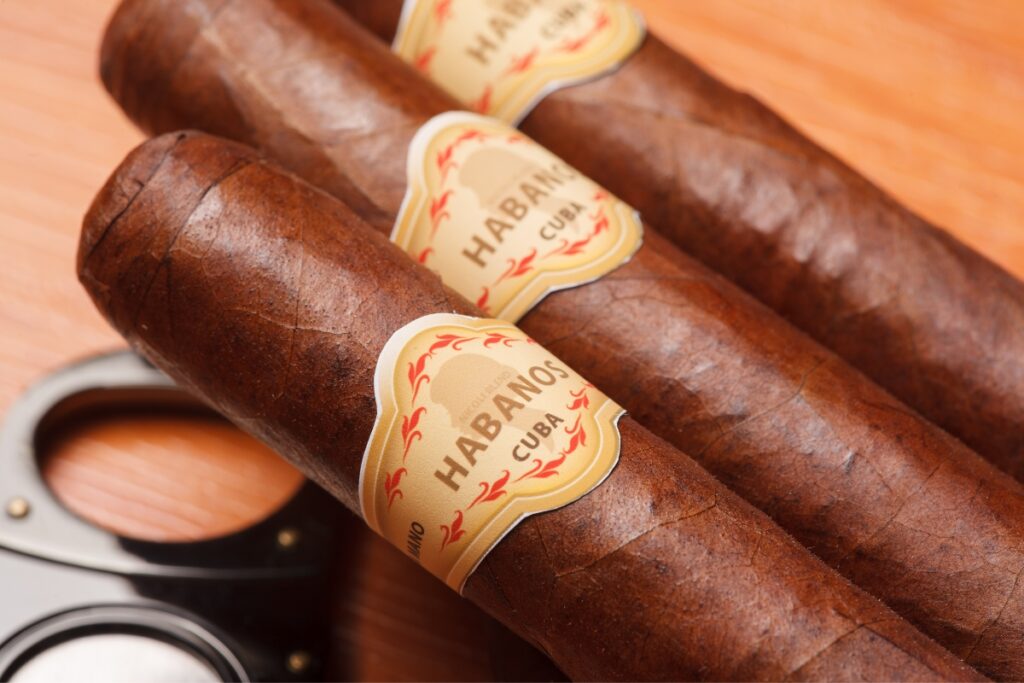
Delving into the rich tapestry of tobacco history, one cannot help but be mesmerized by the legacies of iconic cigar brands that have withstood the test of time. These brands are not just products; they are symbols of tradition, craftsmanship, and a way of life that has captivated aficionados for generations.
Many of these legendary cigar brands have deep-rooted histories that date back centuries. From the fertile tobacco fields of Cuba to the rolling factories in Honduras and Nicaragua, each puff of a cigar from these brands tells a story of expertise and passion passed down through the ages.
One such legendary brand is Cohiba, synonymous with luxury and exclusivity. Established in the 1960s for Fidel Castro himself, Cohiba quickly became a status symbol among cigar connoisseurs worldwide. Its meticulous craftsmanship and flavorful blends have cemented its position as a symbol of sophistication and refinement.
Moving across the Atlantic, the name Montecristo evokes a sense of timeless elegance and impeccable taste. Originating from Cuba and later finding its home in the Dominican Republic, Montecristo cigars are a favorite among those who appreciate complexity and balance in their smoke.
The story of tobacco history is incomplete without mentioning the iconic Romeo y Julieta brand. With origins tracing back to 19th century Cuba, Romeo y Julieta has established itself as a pillar of the cigar world, known for its smooth draw and sublime flavors that have stood the test of time.
In the realm of cigar legends, Partagas stands tall as a beacon of tradition and excellence. Founded in 1845 in Havana, Partagas cigars are a testament to the artistry of blending tobaccos to create unforgettable smoking experiences that have delighted enthusiasts for generations.
Modern Trends and Innovations in Cigar Culture

When exploring the rich heritage of cigars, understanding the modern trends and innovations in cigar culture becomes paramount.
The allure of cigars lies not only in their flavors but also in the rituals and customs that surround them. From the tobacco fields where it all begins to the hands of skilled rollers crafting each cigar with precision, every step in the process contributes to the unique experience that cigar enthusiasts cherish.
In recent years, the cigar industry has witnessed a surge in innovation, with new blending techniques, cigar pairings, and flavor profiles captivating aficionados around the world. From the rise of boutique cigar brands to the popularity of limited edition releases, the landscape of cigar culture continues to evolve, offering a diverse array of options for enthusiasts to explore.
Moreover, the advent of technology has also made its mark on cigar culture, with online communities and forums providing platforms for enthusiasts to connect, share knowledge, and discover new releases.
Virtual tastings and events have further expanded the reach of cigar culture, bringing together aficionados from different corners of the globe to celebrate their shared passion.
Cigar Culture Around the World: Traditions and Rituals

Exploring the rich heritage of tobacco history, one cannot overlook the intricate tapestry of cigar culture around the world. From Havana to Tokyo, cigars hold a special place in various traditions and rituals, reflecting the unique identities of different societies.
In Cuba, the birthplace of some of the finest cigars, smoking a cigar is not just a pastime but an art form. The rolling of cigars by skilled torcedores, often done with precision and care passed down through generations, is a revered tradition. Each puff is a moment to savor the craftsmanship and dedication that goes into creating these tobacco masterpieces.
Moving across the Atlantic to Europe, particularly in countries like Spain and Italy, cigars play a significant role in social gatherings and celebrations. Whether it’s a wedding, a business deal, or a casual evening with friends, cigars are a symbol of sophistication and camaraderie. The act of sharing a cigar is akin to sharing a part of oneself, fostering connections and creating lasting memories.
In Asia, countries like Japan have embraced cigar culture with a blend of tradition and modernity. Cigar lounges in cities like Tokyo offer a sanctuary for aficionados to relax and indulge in the flavors of different cigars from around the world. The meticulous ritual of cutting, lighting, and smoking a cigar is not just about the act itself but a meditative experience that allows one to appreciate the nuances of the tobacco leaves.
Conclusion: A Toast to the Timeless Legacy of Cigar Heritage
Cigar heritage represents more than just smoke; it embodies centuries of tradition, craftsmanship, and enjoyment. As we raise our glasses to the timeless legacy of cigar culture, let us appreciate the artistry and history that have made cigars a symbol of luxury and refinement.
Delve into the rich history of tobacco with Stony Cigars, where tradition meets quality craftsmanship. Whether you’re a seasoned enthusiast or just beginning your journey into the world of cigars, our expertly curated selection of cigars and dedication to heritage ensure an unparalleled experience. Contact us through our website form or call 770-702-5123 to explore our range of premium cigars and embrace the legacy of tobacco.
